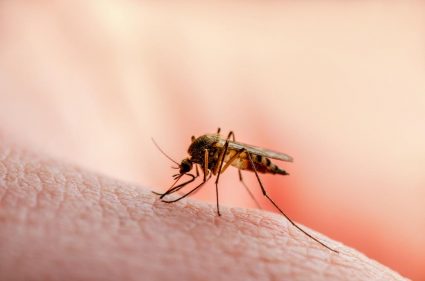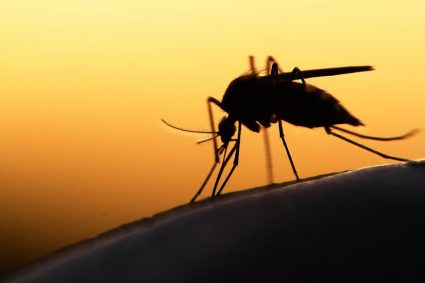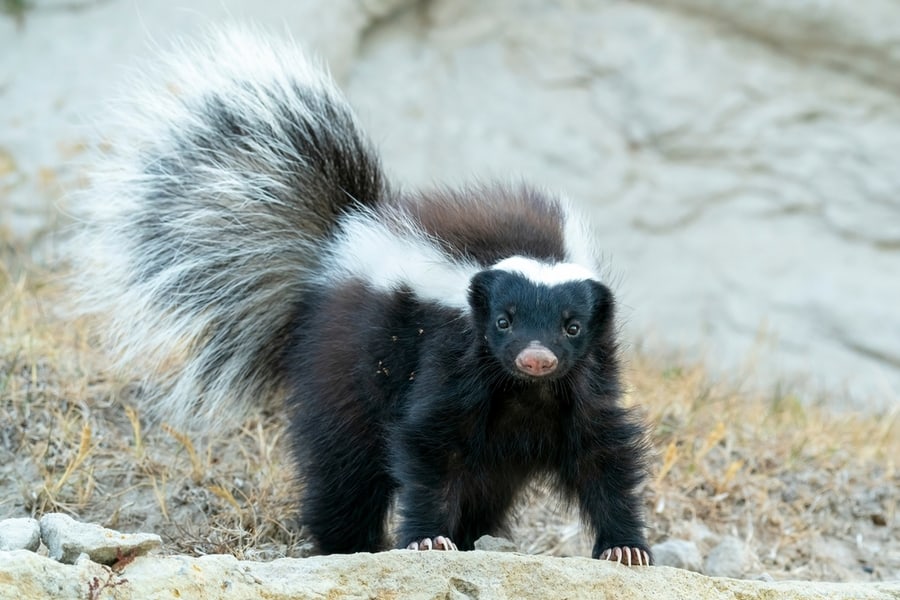
When skunks are cornered and agitated, they release an offensive liquid or spray. This helps scare away anyone they perceive to be a predator.
And since the spray smell lingers, it is just normal to be worried about the likely effects when inhaled. We will discuss these effects in this article.
Skunk sprays have several effects on humans and pets when inhaled. Below are some:
- Respiratory issues
- Eye irritation and itching (if sprayed on the eye)
- Temporary blindness
- Swelling eyes, vomiting, and blindness in pets like dogs
Above are some likely effects of skunk sprays. Let’s take a look at these in this guide.
In the following sections, we will consider the possible effects of skunk sprays when inhaled by humans and pets. Also, we will identify some practical ways to protect yourself against these dangers.
Where Does Skunk Spray Come From?
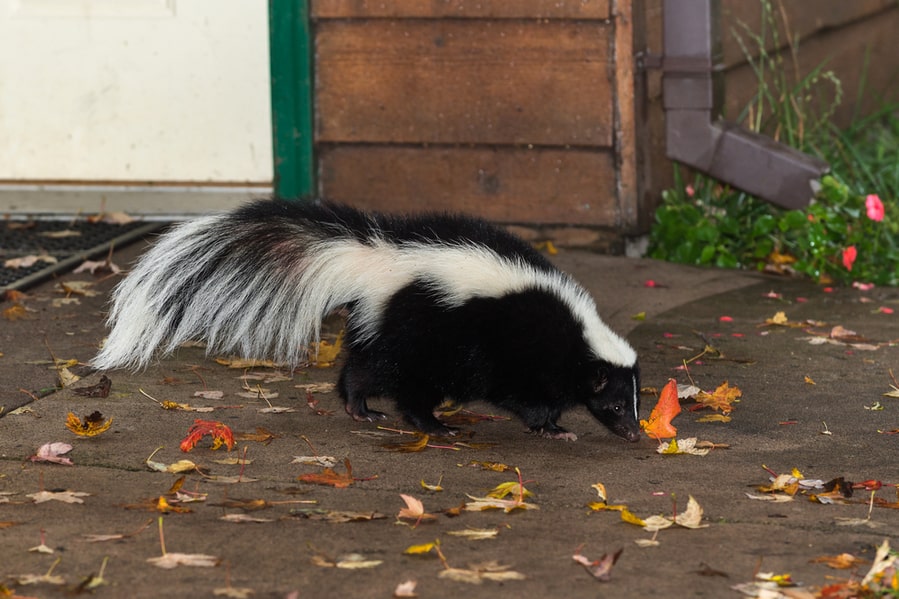
Skunks release this unique defensive liquid from a duct in their anus.
Like pee, skunk spray splashes flow like a stream and can travel a distance, especially in favorable weather.
The spray comes directly from two nozzles protruding from the skunk’s backside, from which it aims its spray.
Once threatened, the animal typically turns its back on the intruder, lifts its tail, and releases the oily, smelly liquid.
However, skunks are protective of their spray because they need weeks to replenish. Without it, they are defenseless. So, they like to think twice before releasing it on human or animal threats.
The effect of skunk spray on humans depends on what body area gets sprayed on.
In the next section, we will examine what happens when you breathe in skunk spray.
What Comes After Breathing In Skunk Spray?

Breathing in skunk spray can quickly result in severe breathing issues.
For instance, if you have an underlying respiratory condition like asthma, this can be a problem.
It can trigger an immediate asthma attack or shortness of breath.
Even without an underlying issue, exposure to skunk spray can make it difficult to breathe and set off nausea.
Other Effects of Skunk Spray on the Body

Skunk spray has different effects on any body part it comes in contact with.
For example, if some drops enter your eyes, you may feel some irritation, itch, or a burning sensation.
In the worst case, say, the spray hits your eyes directly, it can lead to temporary blindness. This is due to its sulfuric content.
Most times, a quick rinse with water can reduce these side effects. But we’ll get to these remedies much later in the article.
Another effect of skunk spray on the human body is nausea. The strong disgusting smell of skunk spray can cause your stomach to churn. As a result, you may get diarrhea, lose your appetite, or even vomit.
Skunk spray also has a solid and musky stench that may linger on your hair and skin even after washing.
Attempting to rid your body of the smell with harsh chemicals may lead to more irritation.
Regardless of its effect on your body, severe symptoms like intense vomiting and bleeding demand urgent attention.
If you notice any of these or other painful symptoms, visit a doctor immediately.
Effects of Skunk Spray on Pets

Pets have similar reactions to skunk spray. Dogs, for example, may experience drooling, swelling of eyes, temporary blindness, and vomiting.
In severe cases of heavy exposure, skunk spray can affect their red blood cells. Although the effect is damaging, the chances of this happening are slim.
What To Do After Getting Sprayed
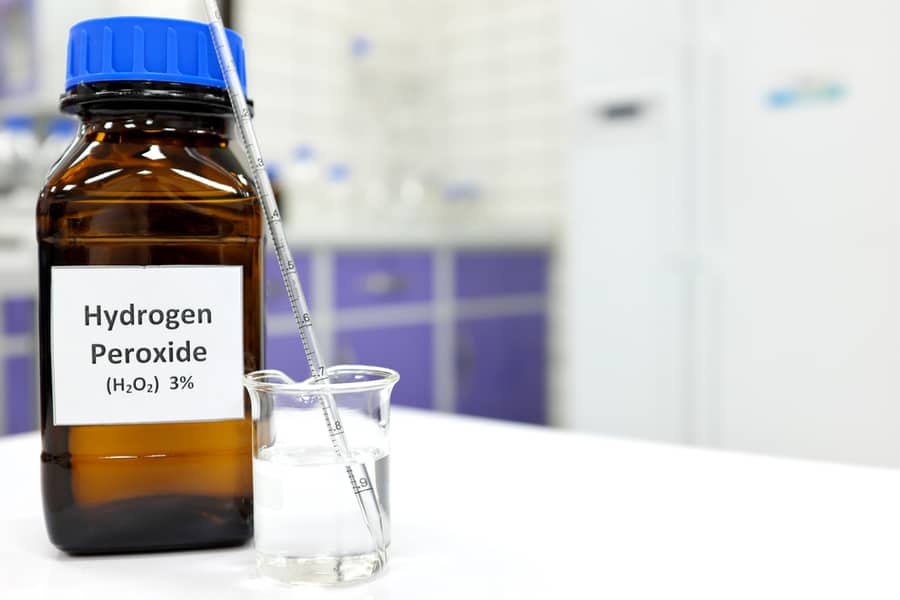
After getting sprayed, the first thing to do is to calm down and not panic. We know that saying “Calm down” has never made anyone genuinely calm.
But, when dealing with cases like this, it is better not to panic to not make the situation worse. Instead, take a bath immediately.
Skunk spray dissolves into the skin in seconds. The longer it stays, the harder it is to deal with. So, run a quick bath, scrubbing your body with a mix of baking soda, liquid soap, and shampoo.
Alternatively, you can neutralize the sulfuric smell with chlorine bleach. Get some chlorine powder, the same used for swimming pools and hot tubs, and have a bath.
Avoid the chlorine bleach used for clothes as it has a high alkaline content. This version is more concentrated and toxic and can melt the hair off your skin.
On the flip side, the cleaning procedure is different if your pet is affected by the skunk spray. Because bleach is more likely to get to your pet’s face, you must take extra caution while cleaning your pet.
It would help if you had some hydrogen peroxide (1 quart of 3%), baking soda, and dishwashing soap. Mix these in a bucket of warm water.
Then, work the lather into your pet’s fur. Leave for five minutes, making sure to avoid getting the solution into its eyes.
Allowing the mixture to sit for longer on your pet’s fur may bleach it. So, keep a watch close.
Next, rinse and apply regular dog shampoo. You may repeat the process multiple times until the smell is gone.
Note: Hydrogen peroxide is a robust solution that can burn without caution. That is why we recommend not exceeding 3%. You should not store the mixture for later, as it can explode if kept in a container.
Another case is, sometimes, the skunk smell may get inside the house and stick to surfaces and objects.
For furniture and clothes, you can soak them in hot water and a mix of baking soda and regular detergent.
Then, air-dry them instead of using a washing machine. The machine dryer can preserve the smell and even destroy delicate clothes that can’t withstand rigorous washing.
For other surfaces like carpets and chairs, you can use a steam cleaner to remove the stench. Then, open the windows to allow fresh air into your house.
Conclusion
Skunks use their spray as a defense tool. You may inhale its foul odor when you encounter one.
This smell is often hard to eliminate, and the liquid can trigger skin irritation and other health issues.
In this guide, we discussed some effects of breathing in skunk spray and how to clean off the smell.
With the right products and the tips above, you can quickly end your skunk spray problem.
Frequently Asked Questions
Why Does Skunk Spray Smell So Bad?
Skunk spray smells terrible due to potent chemical compounds like thiols and thioacetates.
These chemical compounds contain sulfur, an agent that creates a bad smell in rotten eggs. So, put two and two together.
Does Skunk Spray Kill?
While skunk spray may be disgusting, it does not cause harm precisely since it is not poisonous.
How Can I Avoid Getting Sprayed by a Skunk?
The only way to avoid skunk spray is to keep your distance when you spot the animal. But if it is unavoidable, the guide above can save you from the situation.





